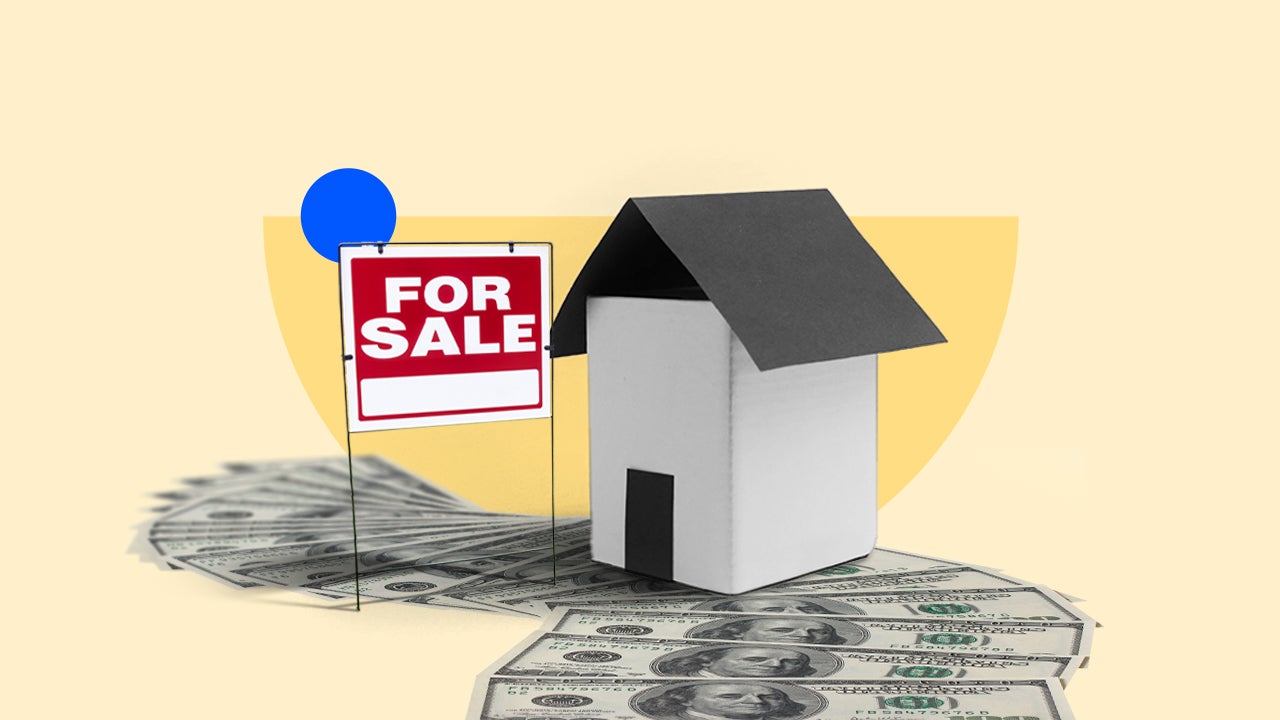Selling your home during the winter holidays

But just because it’s the holiday season doesn’t mean your window of opportunity has slammed shut. By understanding the pros and cons of selling a house during the winter holidays and following some home selling tips, you can increase your odds of unloading that property without undue delay or a big ding to your net proceeds.
Holiday season real estate statistics
Research reveals that historically, November, and December aren’t ideal times for home sellers. According to ATTOM Data Solutions, an analyst of real estate stats, for the last decade (2011- 2021), November has been the second worst month of the year for sellers, in terms of what their homes fetch. The average premium (meaning purchase price above market value) is only 6.1 percent. December doesn’t fare much better, with an average premium of 6.3 percent. By contrast, the month of May historically commands a 12.6 percent premium.
Along with lower sales prices, homes have always tended to sell at a slower pace over the last few weeks of the year at the height of the holiday season. But actually, tradition may be changing: In December 2021, there was a fair amount of activity. Consider these figures:
| Sources: *National Association of Realtors; **Realtor.com | |
| % of homes sold between Thanksgiving and New Year’s 2021 | 10.1% of total 2021 sales* |
| Median home sales price for the 2021 holiday season | $358,800 (Dec 2021), 16.1% year-over-year gain* |
| Average home inventory November 2021 through January 2022 | 947,000 homes for sale* |
| National home sales between November and January (2021-2022 vs. 2020-2021) | 1,368,000 vs 1,397,000* |
| Median listing price in December 2021 | $375,000 (+10% year-over-year)** |
| Average days on the market in December 2021 | 54 (-11% year-over-year)** |
| Active listings of homes for sale in December 2021 | -26.8% year-over-year** |
Of course, the stats may be somewhat skewed, because the real estate market was roaring a year ago, with markets strongly favoring sellers. Throughout 2022, it’s begun to slow and may well continue to, in the near future. Still, the data suggests that the holiday season isn’t necessarily a dead season, real estate-wise.
Pros and cons of selling your home during the winter
There are advantages and disadvantages to trying to sell your property over the holidays and into the early winter.
Pros
One benefit of listing your home now is that any buyers you attract are likely to be highly motivated.
“A good example would be someone who just moved to the area to take a job and wants to be settled in before Christmas,” says Martin Orefice, CEO of Rent To Own Labs, an online search service. “You might also encounter people who are eager to conclude the transaction before the end of the year for tax purposes. These kinds of buyers can be especially eager to make a deal.”
Additionally, there is less competition from other listings at this time of year. Just as buyers are less motivated to house hunt during the holidays and dead of winter, fewer sellers opt to list their properties.
“You’ll have less competition. This can give you the edge of having an available home when inventory otherwise seems low,” says Atlanta Realtor Bill Golden.
Plus, once you have a buyer who makes an offer, the entire process may proceed more quickly at the end of the year than at other times on the calendar. The reason here is that you likely won’t encounter a bidding war or haggle as much on things like contingencies — especially if the purchaser is motivated to close the deal and move in soon. Title companies and lenders may be less swamped too, allowing you to get to closing day sooner.
Cons
On the other hand, there simply aren’t going to be many house-hunters out there in November, December and January.
“You’re much less likely to get normal foot traffic or exposure from people driving through the area, especially if the weather is bad,” explains Dennis Shirshikov, a strategist at Awning.com and a professor of economics at City University of New York. With the shorter days, people have less time to look.
Remember: Reduced interest typically equates to lower offers. Consider, as well, that few people relish the thought of moving during the colder months, which disincentivizes prospective buyers from making an offer.
“If you don’t lock into somebody desperate to purchase, you may be wasting a lot of valuable time and money at a busy time of the year for little to no appreciable return on your investment,” Orefice adds.
Another drawback? The inconvenience of permitting viewings of your home during a busy holiday period.
“It can be difficult to allow buyers into your house when you are planning Thanksgiving dinner or setting up arrangements to have family come over. The added stress of selling during the holidays can take a toll,” cautions Jason Gelios, a Realtor in Southeast Michigan.
Finally, your home may not show to its best advantage, especially if you have lots of lovely landscaping and outdoor fixtures, like a deck or swimming pool. Such selling points’ impact will be somewhat lost in winter time.
Tips and tricks for selling during the winter
If you are determined to list, show and sell your home in the holiday seasons, don’t despair. There are successful strategies you can pursue to increase the likelihood of a speedier sale at a price you’re comfortable with.
“First, do everything you can to ensure your walkways are clear of snow or debris, the exterior is clean of any messes or clutter, and your overall curb appeal is attractive to buyers,” Gelios suggests. “I’ve had buyers lose interest in a home because the walkways were not shoveled and the curb appeal was terrible.”
Smart home staging can make a difference here. Do make things festive: A tree and crackling fireplace (if you have one), wreaths on doors and candles in windows, potpourris and swags of greenery, lights illuminating the outside. But be careful not to go overboard with holiday decor. “You don’t want shoppers to be distracted by too many seasonal stimuli,” says Gelios.
“You don’t want to make it hard for buyers to imagine how the home might look for the other 11 months of the year. Let the home speak for itself as much as possible, and use plenty of light,” adds Orefice. “This is a darker, colder time of the year in much of the country, and you want your buyers to see your home more illuminated.”
And of course, homey, yummy fragrances are always a good touch. “Entice visitors during tours and showings by baking fresh cookies,” says Shirshikov.
You’ll also want to make sure the home’s HVAC system and wiring are in good shape. Prospective buyers will be very aware of drafts, hot or cold spots, and flickering lights.
Lastly, strategize with your real estate agent or Realtor. They likely have valuable experience selling homes at this time of year and will know the best tactics for success. In fact, that’s one good question to ask when interviewing reps: What’s your track record with off-season listings?
Best time of the year to buy or sell
The optimum time to buy a home would be the dead of winter, when most folks don’t think of looking; premiums over fair market value are at their lowest then, according to ATTOM. Conversely the best time to sell a home is typically the spring and summer, when you can probably fetch more offers and command a higher sales price.
But if you can’t wait that long, don’t beat yourself up. “It’s still a worthy option to list your home sooner rather than later. You don’t know the direction that real estate prices and mortgage rates will take months from now,” Shirshikov notes.
In other words, even though you may get less for your home now, it’s possible that average prices and buyer interest will further slip, even as the weather improves next year.
“If you can handle the added pressure of trying to sell a home during the holidays, you could reap the rewards of getting a solid buyer. With lesser competition and the opportunity to stage your home beautifully, you could potentially get more money for your home,” Gelios continues.
Just be prepared for possible disappointment if your home isn’t matched with a buyer by January. “One of the dangers of having your house on the market during the holidays is that, if it does not sell due to low activity, by the time the new year rolls around, your listing will start to look stale and market-weary,” Golden cautions.
Of course, there’s no guarantee things will go better later on. Still, you might be better off waiting until late winter or early spring to sell your home. “Especially if you enjoy celebrating the holidays with family and friends, this is a time that can be much better spent with loved ones than on home showings,” says Orefice.
Frequently asked questions
-
Typically, home prices tend to decrease over the winter months due to fewer buyers looking and greater desperation by sellers motivated to unload properties and move. Still, every market is different. Areas with warmer winter climates or even year-round temperatures may not experience price reductions or lower foot traffic.
-
The decision to take your listed home off the market if it hasn’t sold once winter arrives can depend on many factors. Some experts recommend considering removing your listing if it hasn’t sold within five weeks to two months. You can always relist a property after the holidays, closer to springtime, if you are concerned that it won’t sell or that you will have to significantly reduce the price.
-
Both December and January can be challenging months in which to attempt to sell a home. December is a busy period for many due to holiday plans and vacations, and colder temperatures combined with snow and ice make both months difficult times for home sales in many parts of the country. According to ATTOM Data Solutions, December and January, respectively, are months when seller premiums average 6.3 percent and 6.2 percent above market value – much lower than May and June, when seller premiums average 12.6 and 10.7 percent respectively.
-
Autumn can be a favorable time in which to sell a home, especially to buyers without children who don’t have to worry about the school calendar, according to Martin Orefice with Rent To Own Labs. In addition, from September through November, many buyers are done with vacations and seeking to claim a home before the holiday season approaches.
Why we ask for feedback Your feedback helps us improve our content and services. It takes less than a minute to complete.
Your responses are anonymous and will only be used for improving our website.
You may also like


Buying a home as-is: The pros and cons

What is the best time of year to sell a house?



